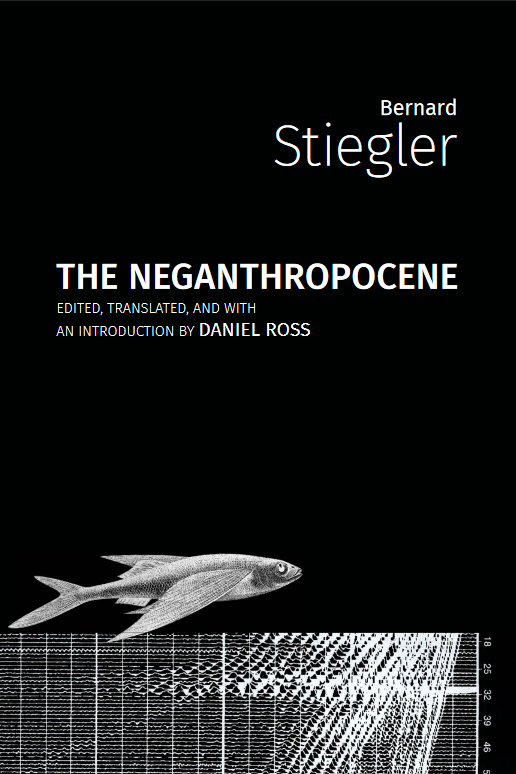The Neganthropocene
Editorial: Open Humanities Press
Licencia: Creative Commons (by-nc-sa)
Autor(es): Ross, Daniel
As we drift past tipping points that put future biota at risk, while a post-truth regime institutes the denial of ‘climate change' (as fake news), and as Silicon Valley assistants snatch decision and memory, and as gene-editing and a financially-engineered bifurcation advances over the rising hum of extinction events and the innumerable toxins and conceptual opiates that Anthropocene Talk fascinated itself with—in short, as ‘the Anthropocene' discloses itself as a dead-end trap—Bernard Stiegler here produces the first counter-strike and moves beyond the entropic vortex and the mnemonically stripped Last Man socius feeding the vortex.
In the essays and lectures here titled Neganthropocene, Stiegler opens an entirely new front moving beyond the dead-end "banality" of the Anthropocene. Stiegler stakes out a battleplan to proceed beyond, indeed shrugging off, the fulfillment of nihilism that the era of climate chaos ushers in. Understood as the reinscription of philosophical, economic, anthropological and political concepts within a renewed thought of entropy and negentropy, Stiegler's ‘Neganthropocene' pursues encounters with Alfred North Whitehead, Jacques Derrida, Gilbert Simondon, Peter Sloterdijk, Karl Marx, Benjamin Bratton, and others in its address of a wide array of contemporary technics: cinema, automation, neurotechnology, platform capitalism, digital governance and terrorism. This is a work that will need be digested by all critical laborers who have invoked the Anthropocene in bemused, snarky, or pedagogic terms, only to find themselves having gone for the click-bait of the term itself—since even those who do not risk definition in and by the greater entropy.
The urgent question today is not how we got into the Anthropocene - it's a bit late to worry about that - but how we might get out of it again, with lives worth living and a world worth living in. Bernard Stiegler's The Neganthropocene starts to think the way to a future beyond our current impasses and dilemmas.
[London: 2018]
Compartir:
Una vez que el usuario haya visto al menos un documento, este fragmento será visible.


